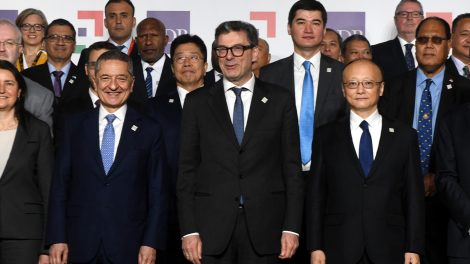Minister Urso sets out his plan. In an exclusive interview with our sister site, Formiche.net, the Minister for Business and Made in Italy noted that Giorgia Meloni’s government envisions an industrial policy that combines its vocation and peculiarities with the economic and production needs that the ecological and digital transition imposes on us.
- “We are preparing a wide-ranging strategic measure precisely to best combine the needs of national security with those of the free market and the country’s necessary competitiveness.”
On the upcoming (and time-resistant) industrial legislation. “For too many years, we have not had an industrial strategy,” said the Business Minister, claiming the country needs “a strategic vision that does not change with the change of governments or the change of legislature.” In the coming days, “we will indicate the direction with precise regulatory acts,” he added.
On strategic autonomy. “[It’s] absolutely crucial, including for making the European infrastructure more solid,” said the minister, noting the founding fathers had already attempted building European defence and energy independence with the Defence Community and the Coal and Steel Community, both of which failed.
- “Now we have to build those then-denied foundations to hold up the common edifice, with strategic autonomy in the fields of defence, energy, and – I would add today – also digital, in the face of competition from China and the United States themselves. Within the framework of our Atlantic and Western area, obviously.”
On how to achieve it. “We need a real revision of the Stability Pact to enable us to implement a European industrial policy that deploys the same instruments that US President Joe Biden recently deployed with the Inflation Reduction Act.”
- Mr Urso voiced the government’s concern regarding the failure to agree on a common gas policy. “The Brussels mountain has given birth to the mouse that has already ended up in the Russian cage,” he quipped.
On semiconductors. The Chips Act is the EU’s first important step, said the minister, noting the bloc is “lagging behind” as it “lets China grow”. Risking “the economy might grind to a halt without these components, now the basis of many products.”
On 5G. “We cannot go from energy dependence on Russia to tech dependence on China. Geopolitical considerations go hand in hand with strategic industrial interests,” he said, responding to a question on 5G and Chinese suppliers Huawei and ZTE – against which the US recently passed further restrictions.
On space (and Italy’s place). “Strengthening Europe means strengthening Italy. Especially in space, where we have always had world-class companies and a chain of SMEs the world envies us.”
On critical raw materials. “Italy will move along the path planned by Europe and its Atlantic partners […] because the issue is so broad that it can only be handled with a geopolitical vision,” plus agreements with the US, as well as South American, African and Middle Eastern countries.
- Common sense suggests Italians should also relaunch mining, done in a sustainable manner, added Minister Urso. He also spoke of adding renewable energy plants and “obviously, increasing all recycling and recovery actions to increase the circular economy.”
- The Minister of Business and Made in Italy is doing its part, he said, by leveraging all its available instruments “to support the autonomy and resilience of the national and European production system.”




